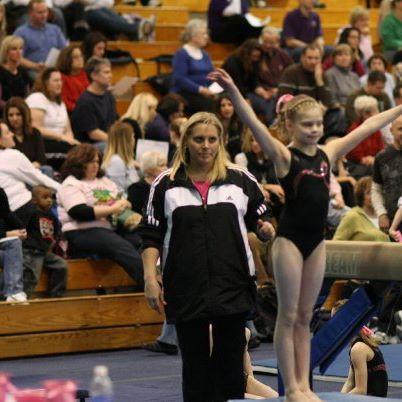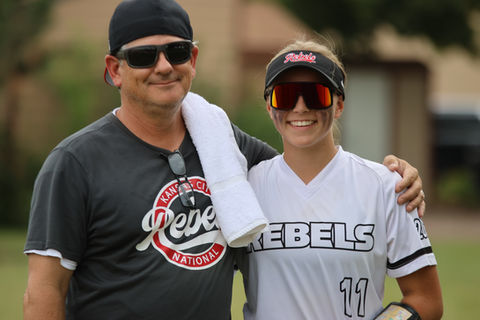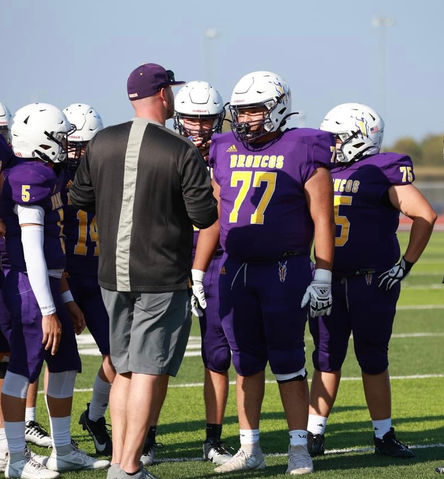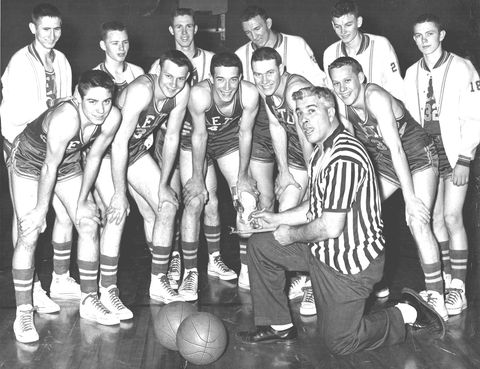

BEYOND COACHING'S mission is to empower young athletes to unlock their full mental potential and achieve success in life and in sport. Through a comprehensive and personalized approach to mental training, I am committed to helping youth athletes develop the resilience, focus, and emotional intelligence needed to thrive. I strive to create a supportive community that fosters growth, self-awareness, and the cultivation of a positive mindset.



Youth sports from the athlete, coach, and parent's perspectives.
I coached gymnastics for 20 years. I think it is one of the best professions in the world, second only to being a parent. Working with young athletes is an honor and privilege, and a job one should never take lightly. When I started coaching, I wanted to build a successful program that would allow both athletes and coaches to have fun. I learned so much from the athletes. More than I could have ever taught them.
As a young gymnast, coaching methods were very different. They were the norm, and some of those methods would not be allowed today. When I became a coach, I took my own experiences as an athlete and copied what I liked about certain coaching styles. I examined what I struggled with and tried to understand the reasons why the methods didn't work and made changes to achieve positive results.
When I became a parent of an athlete, I learned even more about coaching. From a parent’s view, I gained a whole new understanding of what things are most important when it comes to one’s child. It gave me a whole new perspective and I became a better coach because of it.
Over the years, I learned the relationship between the parent, athlete, and coach is the foundation of an athlete’s youth sport experience. Everyone needs to understand there are 3 sides to every one of those experiences.


WHAT IS CBT & WHY DO I USE IT WITH ATHLETES?
Cognitive Behavioral Therapy (CBT) is a widely used and effective approach in the field of counseling and psychotherapy. It's a structured, goal-oriented form of therapy that focuses on identifying and challenging negative thought patterns and behaviors to promote emotional well-being and personal growth.
Negative thought patterns can affect athletes' performance and overall well-being. These patterns can manifest in various ways and can be detrimental to an athlete's confidence, motivation, and success. Here are some common negative thought patterns in athletes:
1. **Self-Doubt:** Athletes may doubt their abilities, question their skills, or fear failure. This can lead to a lack of self-confidence, which can affect performance.
2. **Perfectionism:** Some athletes have an all-or-nothing mentality, where they believe that anything less than perfection is a failure. This can create immense pressure and anxiety.
3. **Catastrophizing:** Athletes might exaggerate the potential negative outcomes of a situation, such as thinking that a small mistake will lead to a disastrous performance or career-ending consequences.
4. **Comparison:** Constantly comparing oneself to others, especially those who are perceived as more successful, can lead to feelings of inadequacy and inferiority.
5. **Overthinking:** Overanalyzing every aspect of performance, technique, or strategy can lead to paralysis by analysis and disrupt an athlete's flow.
6. **Negative Self-Talk:** Using derogatory language and criticism towards oneself can be highly damaging. Athletes who engage in negative self-talk often reinforce their doubts and insecurities.
7. **Fear of Failure:** The fear of making mistakes or losing can be paralyzing for athletes. It can prevent them from taking risks and performing at their best.
8. **Attribution Errors:** Some athletes attribute success to luck and failure to their own shortcomings, which can lead to a sense of helplessness.
9. **Burnout:** Overtraining and pushing oneself too hard without proper rest can lead to physical and mental exhaustion, which in turn can create negative thought patterns.
10. **Injury-Related Anxiety:** Athletes who have experienced injuries may develop anxiety and fear about getting injured again, affecting their performance and confidence.
11. **Social Anxiety:** Athletes may feel anxious or self-conscious in social situations, especially when they perceive judgment from coaches, teammates, or spectators.
12. **Lack of Goal Setting:** Without clear, achievable goals, athletes may feel directionless and struggle to stay motivated.
Addressing negative thought patterns in athletes is crucial for their mental well-being and performance. Strategies such as mindfulness, cognitive-behavioral therapy, positive self-talk, goal setting, and seeking support from sports psychologists or mental coaches can help athletes identify and overcome these patterns, ultimately improving their mental resilience and athletic performance.
Posts


"Working hard for something we don't care about is called stress; working hard for something we love is called passion."
-Simon Sinek



Hi, I am Billie
A former coach and gymnastics club owner.
I am a 50 year old mother of 4 with a husband I have been married to since 2003. I grew up in a suburb, outside the Kansas City metro area, with my parents and 2 sisters. I attended Oklahoma State University where I earned a bachelors degree in Family Science and Child Development. I graduated in the Spring of 1997 and moved back to the KC area.
In 1999, I began my coaching journey in my family's gymnastics club. I had done competitive gymnastics as a child for 14 years. I never dreamed I would become a coach, but I fell in love with the "job" and the sport again. It became my life and passion for 20 years.
A new chapter in my life has begun and my passion is now to educate athletes, coaches, and parents on the mental side of sports. I have gone back to graduate school for clinical and school counseling and I have also worked to become certified as a Mindset Coach for athletes. I want to share what I had learned through my schooling, training, and from the years of working with thousands of athletes and parents.




Always Makes Me Smile

























